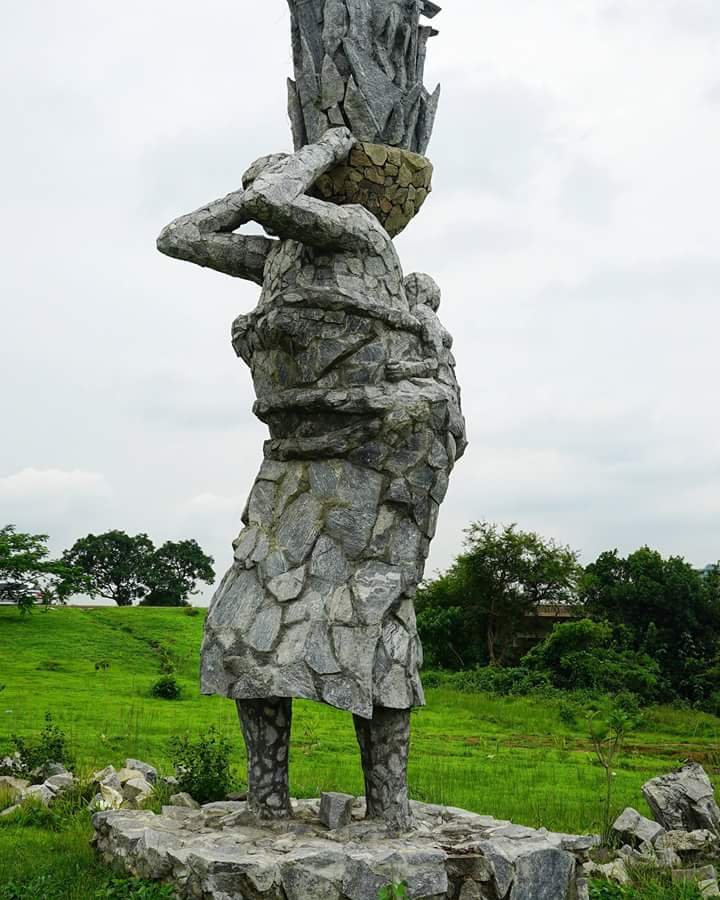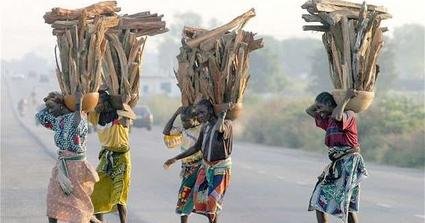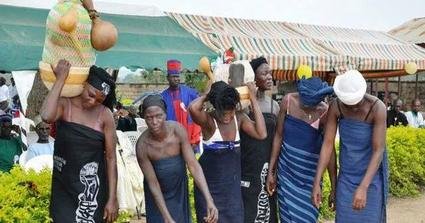The Gbagyi culture is one of the predominant culture in the central Nigeria with a population of about 5 million. They are found in Niger state, Nasarawa state, Jos and federal republic of Nigeria. Their occupation is mostly farming, pottery among their women,woodwork , arts and crafts , and hunters. History holds that the Gbagyi people once live in the northwest side of the country until the fulani during jihad chased them down to the north Central. The Gbagyi people are believe to be peaceful people among other tribe in Nigeria. According to Tanko Chigudu, the Gbagyi people have emerged as a unique breed among Nigerians: their culture shows how much they have come to terms with the universe. Daily they aspire to give life a meaning no matter the situation in which they find themselves.
RELIGION
The Gbagyi people are mostly traditional worshippers until the Introduction of Christianity and islam in the country. They believe in gods known as Eshiya, believe to be powerful. Now, the Gbagyi culture are Islam, Christianity and traditional worshippers. Those who still worship idol carry out some fetish act believing the *Eshiya" needs to be cater for, by offering the blood of animals which could have some spiritual implications on natural resources.
FOOD
The Gbagyi people has a favourite meal known as Ezhey(Tuwo,as the Hausa calls it), which is prepared from maize flour. After a day, the Ezhey is preserved in water and eaten with kandolo,garden egg,fish or ones desire choice of soup. Another meal eaten by the Gbagyi people is pounded yam harvested from farms.
DRESSING AND CULTURE
The Gbagyi people have a unique dressing made from special wool. Their cultural attire is made from black wool and a picture of a woman carrying a calabash on her shoulder weaved with white wool on the black linen.
Kings Burial
The most unique way of the Gbagyi culture is the process involved in the burial of the kings. After a king die, there are rites carried out in the traditional ways. First, a king is not kept in a mortuary because its a tradition that a king's body must be buried that same day he died else the land will be face with calamities , as much as possible people withhold their tears from crying until exactly one year after a king die. The dead king is dressed and sat on a chair dressed in his royal attire as men rain words of praises on him. This is done to hinder people from having the mindset that the king is dead.
The burial process is carried out late in the night when people should be sleeping, to prevent women and children from seeing his dead body and how he is buried. Unlike common men, the king is buried sitting on a chair which was his throne and a small room build in the hole. The tradition holds that, a king body should not be laid on the floor of the ground else the village or town will suffer great disaster.
Marriage
The Gbagyi people before civilize marry among themselves. Anyone who holds a plot of land for farming and could harvest bags of crops and of age was believe to be mature for marriage. The bride price paid is just some sets of clothes packed in a box with some requirements.when it's done, the parents set date for traditional wedding suitable for the couple.
Settlements
The Gbagyi people found In the rural areas settle in small huts and their houses are scanty leaving larger lands for farming and other purpose. The huts are roof with thatches .
Finally my tribe is unique in display of their cultural activities; in dance and musical sounds, they beat drums of different sound based on the occasion. There are drums for sad and happy times, the tone and frequency of notes tells to which purpose it is beaten for at that time.



Very good content! I didn't know about the Gbagyi culture, I find all this interesting and intriguing. Thank you so much for sharing!
You're welcome.
Congratulations @dwixer! You have completed the following achievement on the Hive blockchain and have been rewarded with new badge(s) :
You can view your badges on your board and compare yourself to others in the Ranking
If you no longer want to receive notifications, reply to this comment with the word
STOPThis is so interesting. How is a new king chosen? Is it hereditary? Or some other way? And how soon afterwards is the new king in place? And the chair/throne is that built for the new king especially?
The shrine specifically for kinship determines who rules. If someone who's not qualify rules, he died in few months, so it's a choice made by the idol.. though Christianity has come but that tradition is prevails. And the interval for appointment is decided by the elders
For the throne, I don't know much about that except that a king is buried along with it
The village were I did my youth service is a Gbagyi village. I usually heard side talks from other tribes people that the Gbagyis' are known for juju
Hahaha. Almost all tribe do juju, and Gbagyi are not excluded but Christianity is taking over and the practice is been abolished in most Gbagyi land
I just caught this as I was turning off the computer. I"m going to read it on my iPad as I go to sleep. It looks fascinating!
That's my culture, though Christianity is changing our belief.I wish you could join the contest writing, it will be great reading about your western culture. Thanks, for the tip. Am always grateful
Hi @dwixer,
I really like the idea behind this community. It would be interesting to write for it, if I can find something worthwhile to say that people don't know already. I read your blog last night. Wonderful!
I believe there are things you can still write about your culture